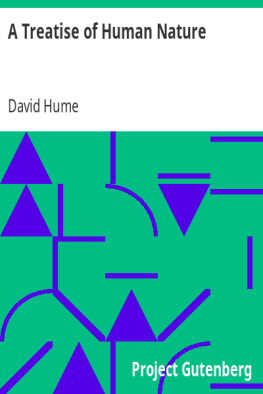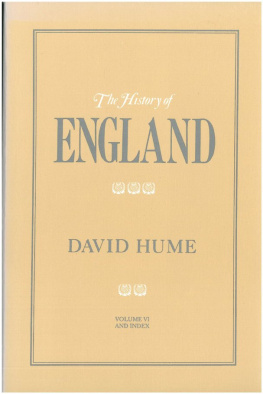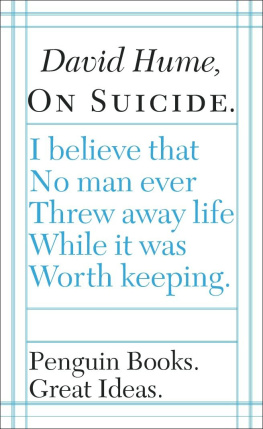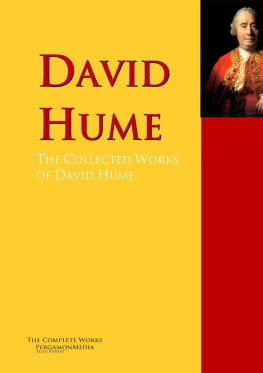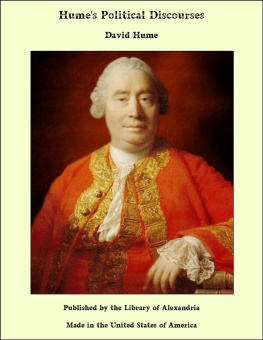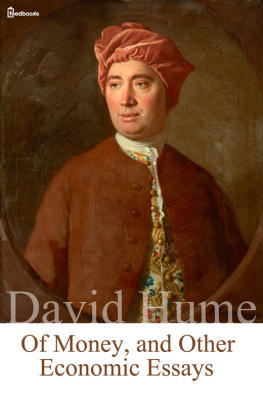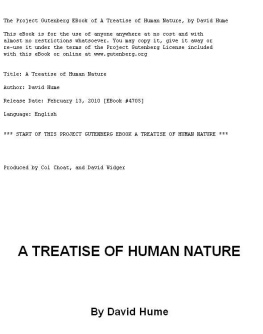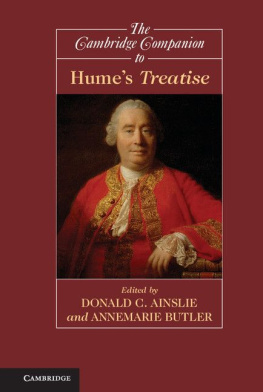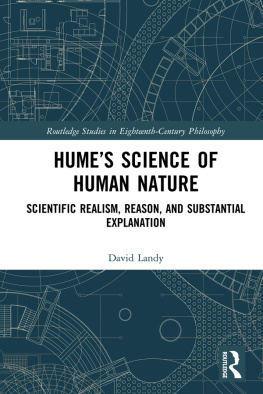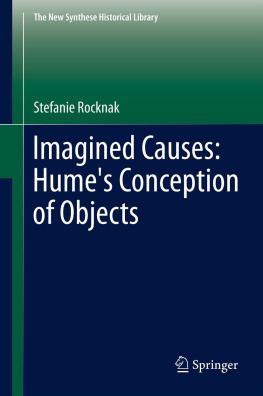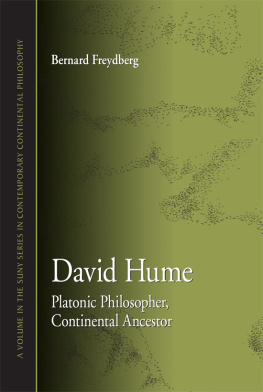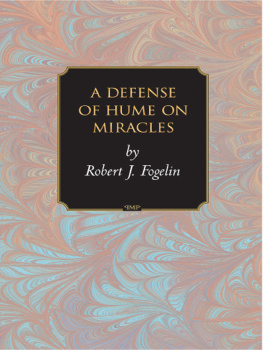David Hume - A Treatise of Human Nature
Here you can read online David Hume - A Treatise of Human Nature full text of the book (entire story) in english for free. Download pdf and epub, get meaning, cover and reviews about this ebook. year: 2003, genre: Science. Description of the work, (preface) as well as reviews are available. Best literature library LitArk.com created for fans of good reading and offers a wide selection of genres:
Romance novel
Science fiction
Adventure
Detective
Science
History
Home and family
Prose
Art
Politics
Computer
Non-fiction
Religion
Business
Children
Humor
Choose a favorite category and find really read worthwhile books. Enjoy immersion in the world of imagination, feel the emotions of the characters or learn something new for yourself, make an fascinating discovery.
- Book:A Treatise of Human Nature
- Author:
- Genre:
- Year:2003
- Rating:5 / 5
- Favourites:Add to favourites
- Your mark:
- 100
- 1
- 2
- 3
- 4
- 5
A Treatise of Human Nature: summary, description and annotation
We offer to read an annotation, description, summary or preface (depends on what the author of the book "A Treatise of Human Nature" wrote himself). If you haven't found the necessary information about the book — write in the comments, we will try to find it.
A Treatise of Human Nature — read online for free the complete book (whole text) full work
Below is the text of the book, divided by pages. System saving the place of the last page read, allows you to conveniently read the book "A Treatise of Human Nature" online for free, without having to search again every time where you left off. Put a bookmark, and you can go to the page where you finished reading at any time.
Font size:
Interval:
Bookmark:
The Project Gutenberg EBook of A Treatise of Human Nature, by David Hume
This eBook is for the use of anyone anywhere at no cost and with
almost no restrictions whatsoever. You may copy it, give it away or
re-use it under the terms of the Project Gutenberg License included
with this eBook or online at www.gutenberg.org
Title: A Treatise of Human Nature
Author: David Hume
Release Date: February 13, 2010 [EBook #4705]
Last Updated: November 10, 2012
Language: English
*** START OF THIS PROJECT GUTENBERG EBOOK A TREATISE OF HUMAN NATURE ***
Produced by Col Choat, and David Widger
CONTENTS
PART II OF JUSTICE AND INJUSTICE
My design in the present work is sufficiently explained in the Introduction. The reader must only observe, that all the subjects I have there planned out to myself, are not treated of in these two volumes. The subjects of the Understanding and Passions make a compleat chain of reasoning by themselves; and I was willing to take advantage of this natural division, in order to try the taste of the public. If I have the good fortune to meet with success, I shall proceed to the examination of Morals, Politics, and Criticism; which will compleat this Treatise of Human Nature. The approbation of the public I consider as the greatest reward of my labours; but am determined to regard its judgment, whatever it be, as my best instruction.
Nothing is more usual and more natural for those, who pretend to discover anything new to the world in philosophy and the sciences, than to insinuate the praises of their own systems, by decrying all those, which have been advanced before them. And indeed were they content with lamenting that ignorance, which we still lie under in the most important questions, that can come before the tribunal of human reason, there are few, who have an acquaintance with the sciences, that would not readily agree with them. It is easy for one of judgment and learning, to perceive the weak foundation even of those systems, which have obtained the greatest credit, and have carried their pretensions highest to accurate and profound reasoning. Principles taken upon trust, consequences lamely deduced from them, want of coherence in the parts, and of evidence in the whole, these are every where to be met with in the systems of the most eminent philosophers, and seem to have drawn disgrace upon philosophy itself.
Nor is there required such profound knowledge to discover the present imperfect condition of the sciences, but even the rabble without doors may, judge from the noise and clamour, which they hear, that all goes not well within. There is nothing which is not the subject of debate, and in which men of learning are not of contrary opinions. The most trivial question escapes not our controversy, and in the most momentous we are not able to give any certain decision. Disputes are multiplied, as if every thing was uncertain; and these disputes are managed with the greatest warmth, as if every thing was certain. Amidst all this bustle it is not reason, which carries the prize, but eloquence; and no man needs ever despair of gaining proselytes to the most extravagant hypothesis, who has art enough to represent it in any favourable colours. The victory is not gained by the men at arms, who manage the pike and the sword; but by the trumpeters, drummers, and musicians of the army.
From hence in my opinion arises that common prejudice against metaphysical reasonings of all kinds, even amongst those, who profess themselves scholars, and have a just value for every other part of literature. By metaphysical reasonings, they do not understand those on any particular branch of science, but every kind of argument, which is any way abstruse, and requires some attention to be comprehended. We have so often lost our labour in such researches, that we commonly reject them without hesitation, and resolve, if we must for ever be a prey to errors and delusions, that they shall at least be natural and entertaining. And indeed nothing but the most determined scepticism, along with a great degree of indolence, can justify this aversion to metaphysics. For if truth be at all within the reach of human capacity, it is certain it must lie very deep and abstruse: and to hope we shall arrive at it without pains, while the greatest geniuses have failed with the utmost pains, must certainly be esteemed sufficiently vain and presumptuous. I pretend to no such advantage in the philosophy I am going to unfold, and would esteem it a strong presumption against it, were it so very easy and obvious.
It is evident, that all the sciences have a relation, greater or less, to human nature: and that however wide any of them may seem to run from it, they still return back by one passage or another. Even. Mathematics, Natural Philosophy, and Natural Religion, are in some measure dependent on the science of MAN; since the lie under the cognizance of men, and are judged of by their powers and faculties. It is impossible to tell what changes and improvements we might make in these sciences were we thoroughly acquainted with the extent and force of human understanding, and could explain the nature of the ideas we employ, and of the operations we perform in our reasonings. And these improvements are the more to be hoped for in natural religion, as it is not content with instructing us in the nature of superior powers, but carries its views farther, to their disposition towards us, and our duties towards them; and consequently we ourselves are not only the beings, that reason, but also one of the objects, concerning which we reason.
If therefore the sciences of Mathematics, Natural Philosophy, and Natural Religion, have such a dependence on the knowledge of man, what may be expected in the other sciences, whose connexion with human nature is more close and intimate? The sole end of logic is to explain the principles and operations of our reasoning faculty, and the nature of our ideas: morals and criticism regard our tastes and sentiments: and politics consider men as united in society, and dependent on each other. In these four sciences of Logic, Morals, Criticism, and Politics, is comprehended almost everything, which it can any way import us to be acquainted with, or which can tend either to the improvement or ornament of the human mind.
Here then is the only expedient, from which we can hope for success in our philosophical researches, to leave the tedious lingering method, which we have hitherto followed, and instead of taking now and then a castle or village on the frontier, to march up directly to the capital or center of these sciences, to human nature itself; which being once masters of, we may every where else hope for an easy victory. From this station we may extend our conquests over all those sciences, which more intimately concern human life, and may afterwards proceed at leisure to discover more fully those, which are the objects of pore curiosity. There is no question of importance, whose decision is not comprised in the science of man; and there is none, which can be decided with any certainty, before we become acquainted with that science. In pretending, therefore, to explain the principles of human nature, we in effect propose a compleat system of the sciences, built on a foundation almost entirely new, and the only one upon which they can stand with any security.
And as the science of man is the-only solid foundation for the other sciences, so the only solid foundation we can give to this science itself must be laid on experience and observation. It is no astonishing reflection to consider, that the application of experimental philosophy to moral subjects should come after that to natural at the distance of above a whole century; since we find in fact, that there was about the same interval betwixt the origins of these sciences; and that reckoning from THALES to SOCRATES, the space of time is nearly equal to that betwixt, my Lord Bacon and some late philosophers [Mr. Locke, my Lord Shaftesbury, Dr. Mandeville, Mr. Hutchinson, Dr. Butler, etc.] in England, who have begun to put the science of man on a new footing, and have engaged the attention, and excited the curiosity of the public. So true it is, that however other nations may rival us in poetry, and excel us in some other agreeable arts, the improvements in reason and philosophy can only be owing to a land of toleration and of liberty.
Font size:
Interval:
Bookmark:
Similar books «A Treatise of Human Nature»
Look at similar books to A Treatise of Human Nature. We have selected literature similar in name and meaning in the hope of providing readers with more options to find new, interesting, not yet read works.
Discussion, reviews of the book A Treatise of Human Nature and just readers' own opinions. Leave your comments, write what you think about the work, its meaning or the main characters. Specify what exactly you liked and what you didn't like, and why you think so.

